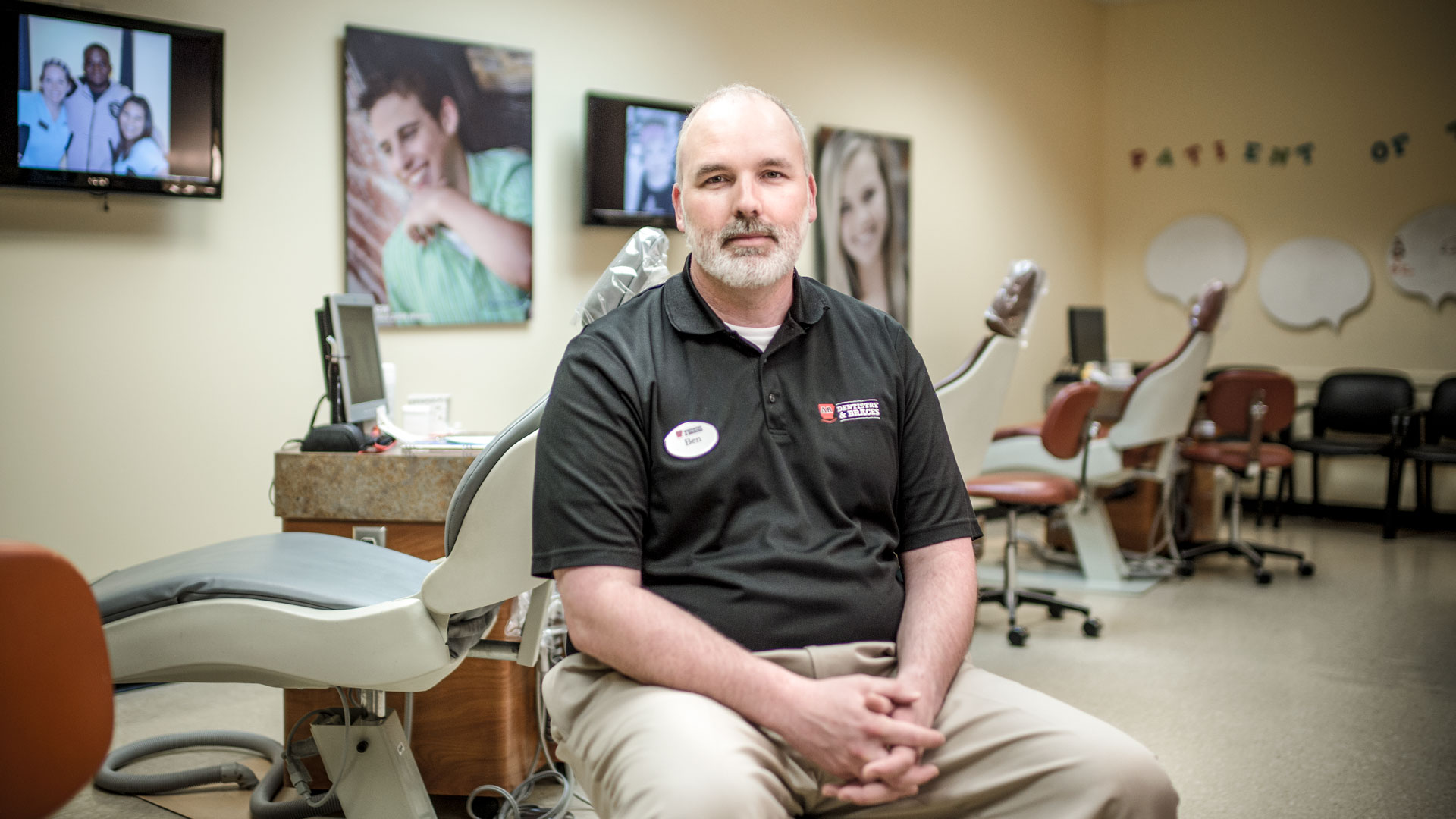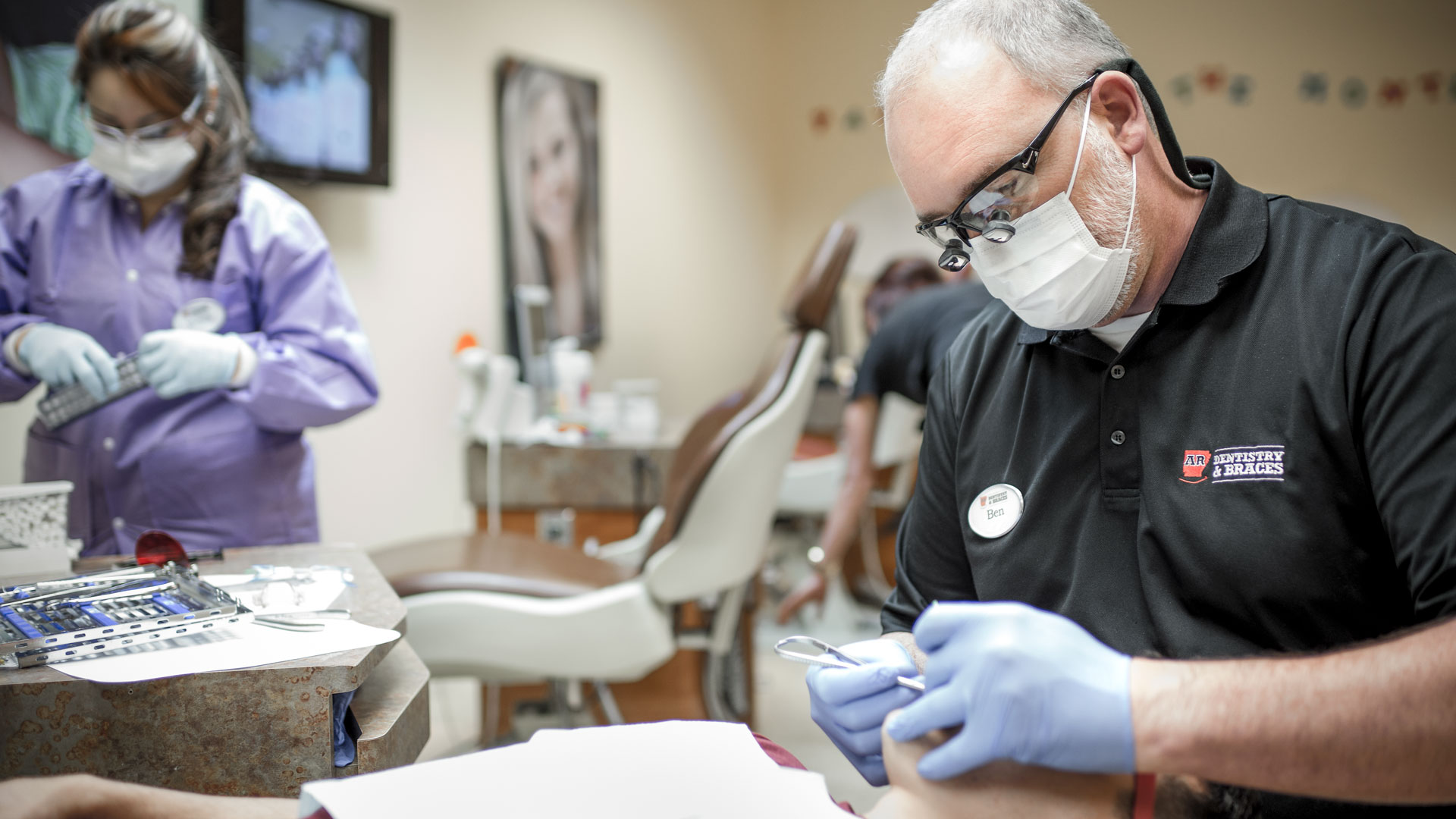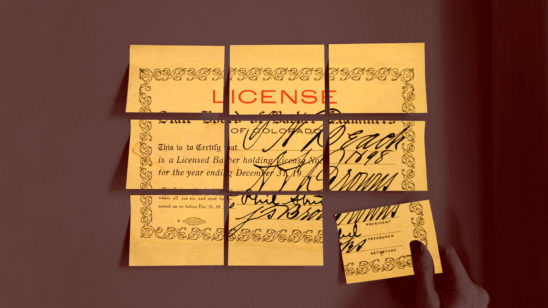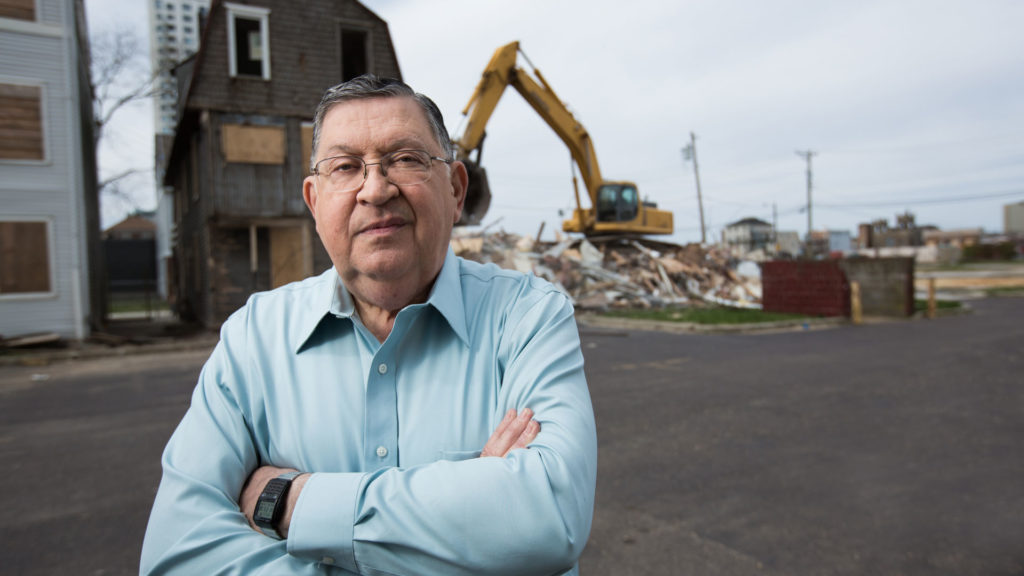“My father’s an orthodontist. I watched my father create great smiles and make people happy, and I really wanted to do that.” By the time he got into college, Dr. Benjamin Burris, who goes by Ben, knew he wanted to follow in his father’s footsteps.
After finishing his orthodontics residency and a few years practicing in Jonesboro, Arkansas, Burris set out with a lofty goal: he wanted to make dental healthcare affordable to those in need, all across his native Arkansas.
“When people have braces on, it’s more difficult to clean and we want them to have access to low cost cleaning so they can do it more often and keep the teeth healthy.” He says, “there’s a big link between clean teeth and health mouths and healthy body…we thought we’d start offering low cost hygiene for those who couldn’t get it otherwise.”
In 2008, he did just that, and started offering free braces to low-income children through his nonprofit, Smile for a Lifetime. In June 2013, he scaled his practice up, providing dental and orthodontic care to poor families without insurance at a much better cost than insurance companies and other dentists were willing to provide.
“A lot of people don’t see a dental hygienist regularly, and their number one reason for doing that is cost,” says Burris. His practice started offering comprehensive dental care adults and kids, all under $100. Then, the regulators came for him.
“They didn’t waste any time trying to shut us down,” says Burris, of the general dentists whose profits were threatened by his low-cost practice.
Within weeks, the State Board of Dental Examiners gave Burris a call to let him know general dentists were complaining about his practice. After this initial courtesy, the Board tried to take Burris’s license claiming he was practicing outside his area of expertise, which was orthodontics. But Burris kept wondering: why should orthodontists––who are dental specialists––not be able to practice more generally, given the amount of crossover between orthodontia and broader dental care? Burris had already been to four-year dental school, learning everything a general dentist would learn, before completing a three-year specialized residency in orthodontics. The Board’s logic just didn’t make sense since, if anything, Burris was overqualified for the care he was rendering to patients.

There was no review or trial, says Burris. “They can take my license for any reason they want to…I’m just totally powerless to do anything” about it, he laments. “It’s all about protectionism and money.”
There are less than 50 orthodontists in the entire state of Arkansas, but more than 1,000 dentists. Burris believes the dentists who came after him were just trying to protect their bottom line. Unfortunately, sabotaging the ability of one skilled orthodontist to provide care to hundreds of poorer individuals flies squarely in the face of serving the general interest.
After all, the purpose of the Arkansas State Board of Dental Examiners is to defend the interests of Arkansas residents, but the Board is staffed primarily by the people it claims to regulate––dentists.
In 2014, with the help of the libertarian law firm, Institute for Justice (IJ), Dr. Burris sued the State Board in the U.S. District Court for the Eastern District of Arkansas. Burris and IJ brought forth the claim that the State Board was violating citizens’ 14th Amendment equal protection and due process rights to earn a living free from undue government interference. As IJ put it, “The government cannot pass laws in order to protect the profits of certain groups.”
A federal judge dismissed the suit, but in 2015, the Eighth U.S. Circuit Court of Appeals took the case back up and cleared the way for Burris to keep fighting against government wrongdoing.
But in 2016, after eighteen months of fighting the State Board, Burris suspended his lawsuit and relinquished his orthodontia license to better spend his time and money serving those in need with his general dentistry knowledge.
Burris told the Institute for Justice that, “I’m still the same guy, with the same qualifications, that I was yesterday. But Arkansas has forced me to make a ridiculous choice about what to call myself.”
“I have chosen to put the needs of Arkansans above my own right to call myself what I am—a trained orthodontist.”
Sadly, this story happens too often: someone is interested in public service, but big government gets in the way and makes it harder for disadvantaged people to be helped by well-meaning fellow citizens. Still, Burris maintains his belief that “being able to do more for more people for less money is a good thing, and worth fighting for.”


